Encyclopedia: Actinidia and other fruit
View
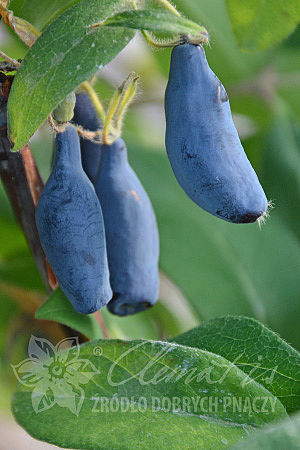
Lonicera kamtschatica ‘Vostorg’
haskap (blue honeysuckle, honeyberry) 'Vostorg'A shrub yielding tasty, sour-sweet berries ripening in May and June. First fruit set in the 2ndor 3rd year after planting. Long-lived and frost hardy. Recommended for amateur cultivation in domestic gardens. WHAT IT LOOKS LIKE: Fruit oblong, dark-blue, fusiform with a delicate waxy film; very tasty, sour-sweet, devoid of any bitter aftertaste; ripen May-June. Plants yield fruit in the 2nd or 3rd year after planting. Flowers are modest, pale yellow, rich in nect...
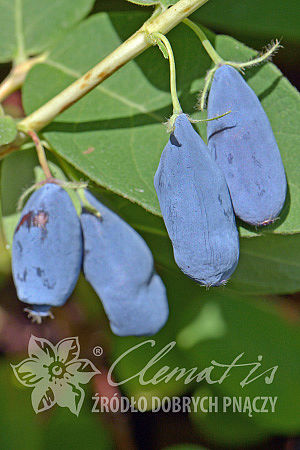
Lonicera kamtschatica ‘Wojtek’
haskap (blue honeysuckle, honeyberry) 'Wojtek'Long-lived and very frost hardy plant grown for their tasty, healthy and very early ripening fruit.
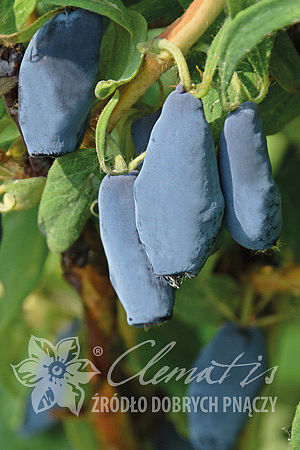
Lonicera kamtschatica ‘Zojka’
haskap (blue honeysuckle, honeyberry) 'Zojka'A strong-growing cultivar of large, sweet-sour fruit ripening in May and June. Long-lived and frost hardy shrub. Recommended both for domestic gardens and production plantations. WHAT IT LOOKS LIKE: Berries round, dark blue with a delicate waxy coating, very tasty, sweet-sour; ripen in May-June. The plant yields fruit in the 2nd- 3rd year after planting. Flowers modest, pale yellow, melliferous, without ornamental value, open in March. They require cross pollin...
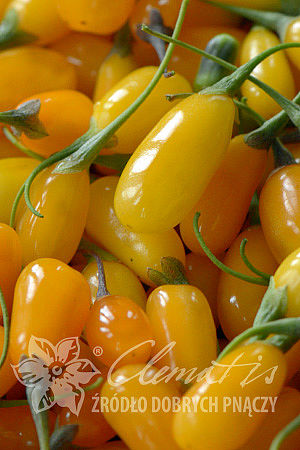
Lycium barbarum AMBER SWEET GOJI®
wolfberry, goji berry AMBER SWEET GOJI®An outstanding new cultivar yielding fruit of a unique yellow amber colouring, larger and sweeter than the average in the species. Goji berries have been used for centuries in traditional Chinese, Korean, Japanese and Tibetan medicinal arts. This cultivar’s fruit (the batch of 25.08.2015) have been tested in the Medical University of Gdańsk. The results proved the berries don’t contain any alkaloids harmful to humans. WHAT IT LOOKS LIKE: Fruit of unusual,...
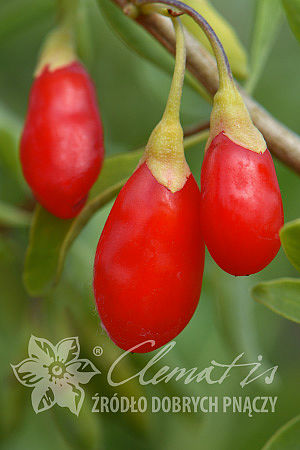
Lycium barbarum ‘New Big’
goji berry 'New Big'Nutritional and decorative plant used for centuries in the traditional Chinese, Korean, Japanese and Tibetan medicine. Its main attraction are orange-red fruits, commonly known as Goji berries. ‘New Big’ cultivar’s fruit are bigger (2 cm length and 1 cm diameter) and sweeter than the species fruit. They ripen from August to October. Ripe berries are edible, tasty and sweet. They come third on the list of vitamin C-rich plants with 2500 mg per 100 g value. They are als...
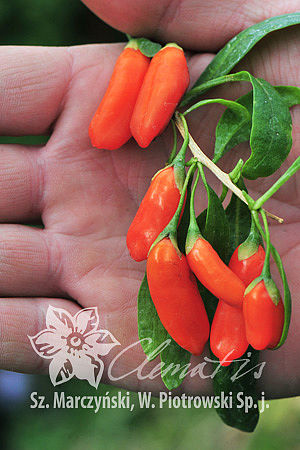
Lycium barbarum ‘No.1’
goji berry 'No.1'Nutritional and decorative plant used for centuries in the traditional Chinese, Korean, Japanese and Tibetan medicine. Its main attraction are orange-red fruits, commonly known as Goji berries. ‘No.1’ cultivar’s fruit are bigger (2,5 cm) and sweeter than the species fruit. They ripen from August to October. Ripe berries are edible, tasty and sweet. They come third on the list of vitamin C-rich plants with 2500 mg per 100 g value. They are also rich in vitamin B and vi...
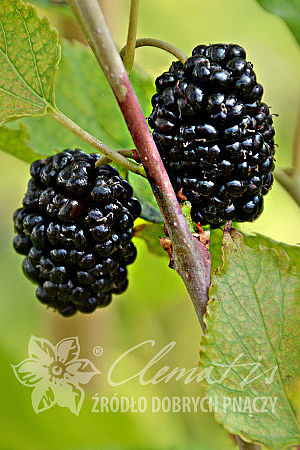
Morus ‘Full Seasons’
Morus 'Full Seasons'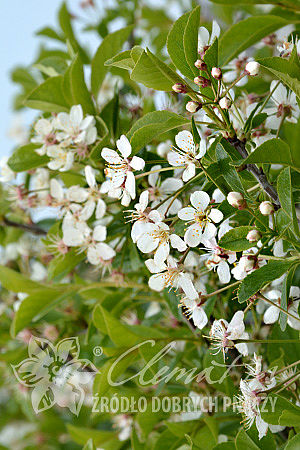
Prunus ‘Carmine Jewel’
Cherry 'Carmine Jewel'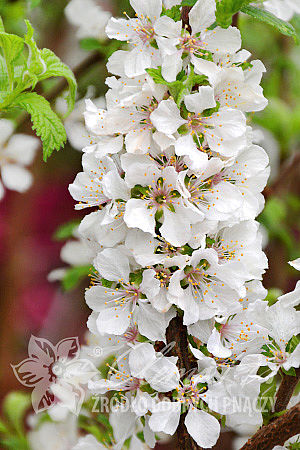
Prunus tomentosa
Nanking CherryA prettily blooming fruiting shrub. In spring it is covered with pale pink flowers. It is also recommended due to its tasty fruit, ripening in July. It is suitable for container cultivation. WHAT IT LOOKS LIKE: Leaves medium-sized, serrate; in autumn turn red. Flowers 3 cm across, pale pink, numerous. In bloom in III and IV. Edible, juicy fruits set on very short pedicles along the shoots’ whole length. Tasty, sweet-sour; ripening in VII. HOW IT GROWS: a shr...
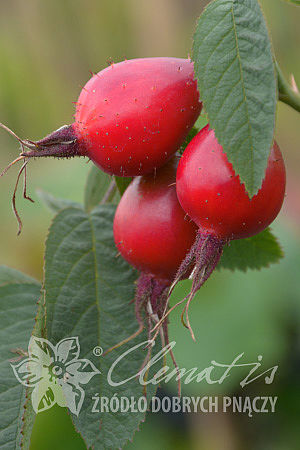
Rosa ‘Karpatia’
Rose 'Karpatia'Fruiting rose recommended for house gardens as well as for commercial plantations. The fruit are a valuable source of vitamin C. The cultivar is resistant, undemanding and easy maintain. WHAT IT LOOKS LIKE: Fruit edible, highly nutritious, quite large (3-4 cm long), red, very numerous, attractive; start ripening as early as VIII. Flowers 4-6 cm across, single, pa...
The cultivar selected in the Plant Raising Institute in Bojanice by J. Šimánek in 1973. Slovakia.
